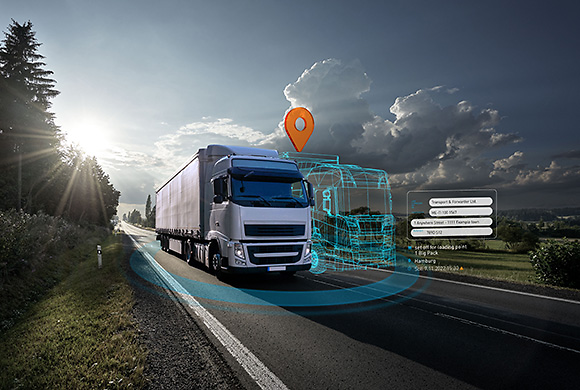Borderless Logistics are the Foundation of a Strong Europe
Cross-border road transport is systemically relevant for maintaining supply chains and keeping Europe strong.

Only the strong can afford weaknesses. Seen from that angle, Europe is a muscle man. Admittedly a muscle man who is not all that coordinated when it comes to letting those muscles work together. The coronavirus pandemic has, on the one hand, highlighted the limitations of the European idea and, on the other, shown that road transport within Europe is crucial.
What we saw and experienced during the lockdown was not indicative of a strong and united Europe. Instead of a joint solution, there were a variety of individual rules in each Member State and neighbouring countries. National isolation instead of coordinated action. The result was temporarily closed borders and trucks stuck in traffic jams.
Coming together for Europe
“The pandemic has revealed how fragile the European project still is,” said German Chancellor Angela Merkel in an address to the German Parliament. In advance of Germany taking over the office of the EU Council Presidency on 1 July, the Chancellor also suggested a way to strengthen the Union: “We in Europe must boldly stand up for each other.” How right she was.
Free trade and free movement of goods is a clear European strength. It serves to maintain supply chains – especially in times of crisis – which are fundamentally important and relevant for the system. To make true use of this strength, it has to be coordinated within the community. And in a functioning economy, that is above all a task for the logistics industry. The effects of the pandemic and the lockdown on Europe made it crystal clear that logistics is relevant for the system, not just for Germany, but also for the entire population of Europe. Hard work and dedication by so many freight forwarders and transporters, as well as courier express package services, made it possible to manage the rapid increase in shipments and ensure that grocery stores did not run out of essential products. Without the logistics industry, we would still be waiting for PPE and other necessities. Without production supplies, many more companies that rely on international division of labour will have to remain closed.
Functioning supply chains are impossible to maintain without borderless road transport
To ensure that every European country can flex their muscles within the context of global competition for market shares, driving forces within the European Union must work together. Progress, economic development and prosperity are impossible without the numerous small and mid-sized companies within the logistics industry, functioning supply chains are inconceivable without borderless road transport.
Politicians and economies must ensure that requirements are in place to support reliable and fair supply chains that can withstand crises. Europe may be more or less unified when it comes to the Green Deal, having set ambitious goals, but the transport industry continues to be basically ignored by the ‘European project’.
What would really show strength in terms of economic solidarity would be not just making Europe the first climate neutral continent, but also finding a joint solution for sustainable supply chains that secure both the flow of goods and the associated infrastructure. After all, an uninterrupted flow of goods and services is a basic requirement for the welfare of the European community. Border closures within the EU did more than just interrupt the flow of goods. They were also detrimental to European interconnectedness. Long term and trustworthy supplier relationships also significantly reduce the risk of production still stands and work stops.
IT and logistics for a Pan-European infrastructure
The European division of labour works, because the logistics industry brings each individual component together into a comprehensive whole. IT and logistics have created the necessary framework for coordinating these supply chains within Europe. Digitalisation of freight assignation makes cooperation between transport and logistics partners across borders simpler and more secure.
Using, for example, the TIMOCOM Smart Logistics System. The system proves that right now, more than 130,000 users from more than 44 European countries can work together. Digital applications allow for cooperation across companies and countries for all links in the European road transport chain. The system offers a Pan-European, digital infrastructure in which coordination on an operational level can be carried out simply, securely and fairly. The system means that transport orders across Europe can be jointly coordinated and completed with optimal efficiency, a basic necessity for logistics.
To ensure that this remains the case, the borders must stay open.
Other interesting articles:
